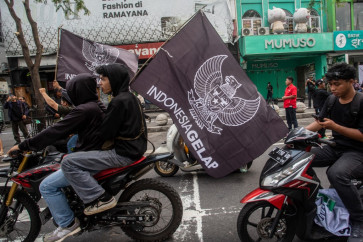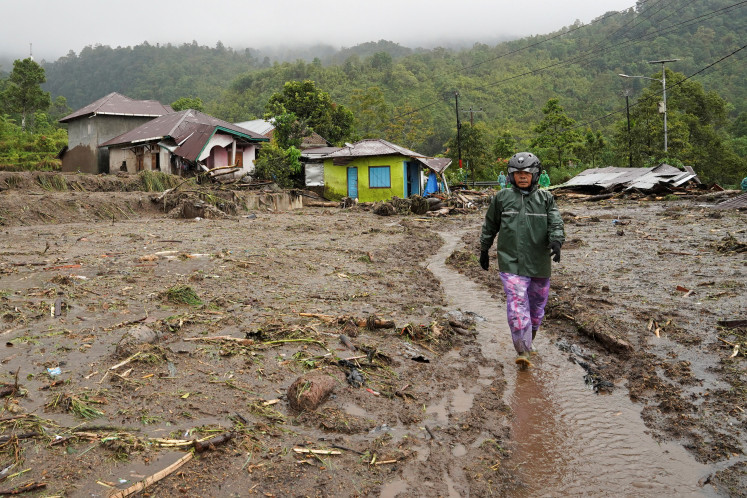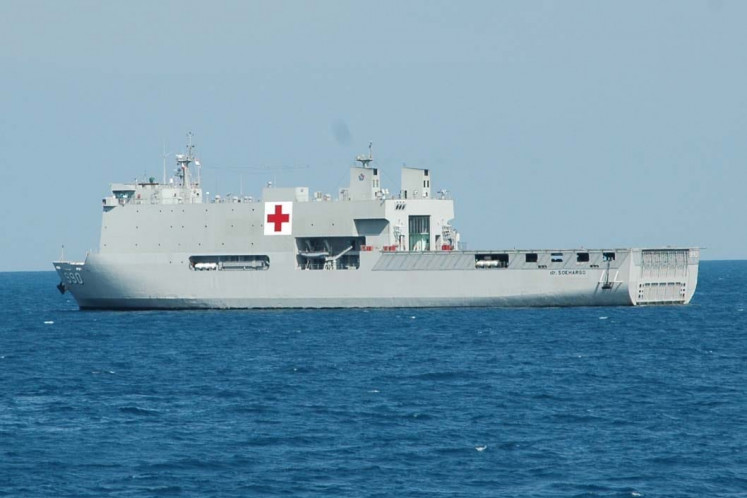Popular Reads
Top Results
Can't find what you're looking for?
View all search resultsPopular Reads
Top Results
Can't find what you're looking for?
View all search resultsWhile education and healthcare suffer, TNI’s budget soars
While most people have limited access to quality education and health services, the government plans to allocate a large portion of next year’s budget to military spending
Change text size
Gift Premium Articles
to Anyone
W
hile most people have limited access to quality education and health services, the government plans to allocate a large portion of next year’s budget to military spending.
The move has drawn criticism of the way the government manages the state budget.
According to the Cabinet Secretariat website, the government has drafted the 2013 state budget, which reveals that the Defense Ministry gets the lion’s share of funds, followed by the Public Works Ministry, the Education and Culture Ministry, the National Police, the Religious Affairs Ministry and the Health Ministry.
Citing a draft by the National Development Planning Board (Bappenas), the Cabinet Secretariat says the government will allocate Rp 76.538 trillion (US$8.11 billion) of next year’s state budget to the Defense Ministry, much greater than the Rp 30.915 trillion allocated for the Health Ministry.
“The government should have prioritized programs that directly affect the people, such as education and health, especially because under prevailing laws, the government must allocate 20 percent and 5 percent of the state budget to education and health, respectively. I don’t think there are any laws that require the government to allocate certain a percentage of the budget to the Defense Ministry,” Indonesian Forum for Budget Transparency (FITRA) coordinator Ucok Sky Khadafi said on Tuesday.
Ucok welcomed the government’s intention to raise the budget for defense from this year’s Rp 72.5 trillion, saying that such an increase would be necessary to support the ministry’s attempt to modernize primary weaponry systems. However, he said it should not exceed the amounts needed for education and health.
Echoing Ucok, Al Araf of human rights watchdog Imparsial has decried the government’s decision to increase the military’s defense budget while other countries had reduced theirs due to the financial crisis.
“For me it just doesn’t make sense, particularly as the allocation exceeds the government’s support for essential programs, such as education. I’m not saying that the military is not important, but we must realize which one is the most urgent,” he said.
He thus called on the government to gradually increase the budget for the military according to the urgent needs within the institution. The welfare of soldiers needed to be prioritized, not weaponry,
he added.
“Armed conflicts among countries are unlikely to occur in the near future as the international community has developed a culture of diplomacy. Therefore, I don’t think there is any urgency to modernize our weaponry systems,” he said.
Separately, Defense Ministry spokesman Brig. Gen. Hartind Asrin said that the high budget allocated to his ministry was due to an urgency to procure more weaponry and for its maintenance, as well as to improve the wealth of military personnel.
“We are planning to procure more weaponry to support our Army, Navy and Air Force, as has been included in our Administration’s Strategic Plan [Renstra] for 2010 to 2014. We, for example, plan to procure fighter jets for the Air Force, submarines for the Navy and tanks and armored personnel carriers for the Army next year through multi-year programs,” Hartind said.
He added that the ministry would also focus on improving the welfare of military personnel, especially those based in border areas.
“We plan to increase the remuneration of military personnel to meet 40 percent of the welfare target next year, from this year’s 34 percent, and will gradually increase it to 100 percent,” he said.










